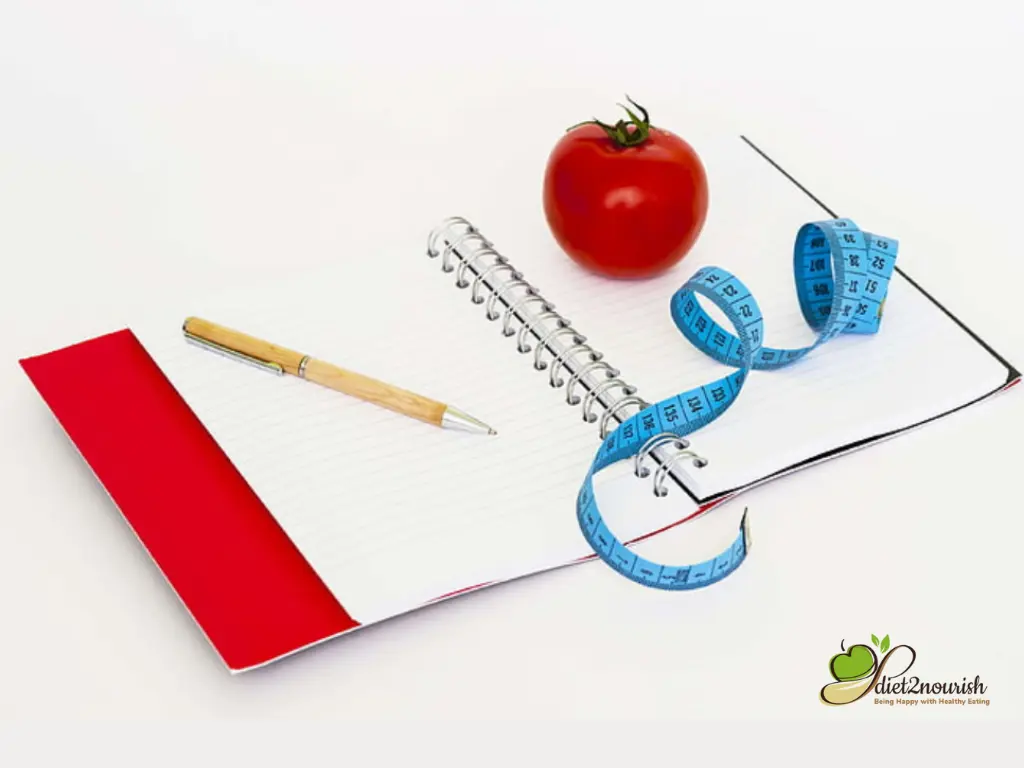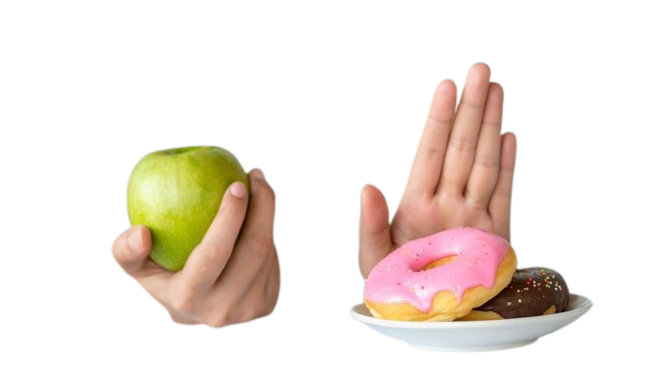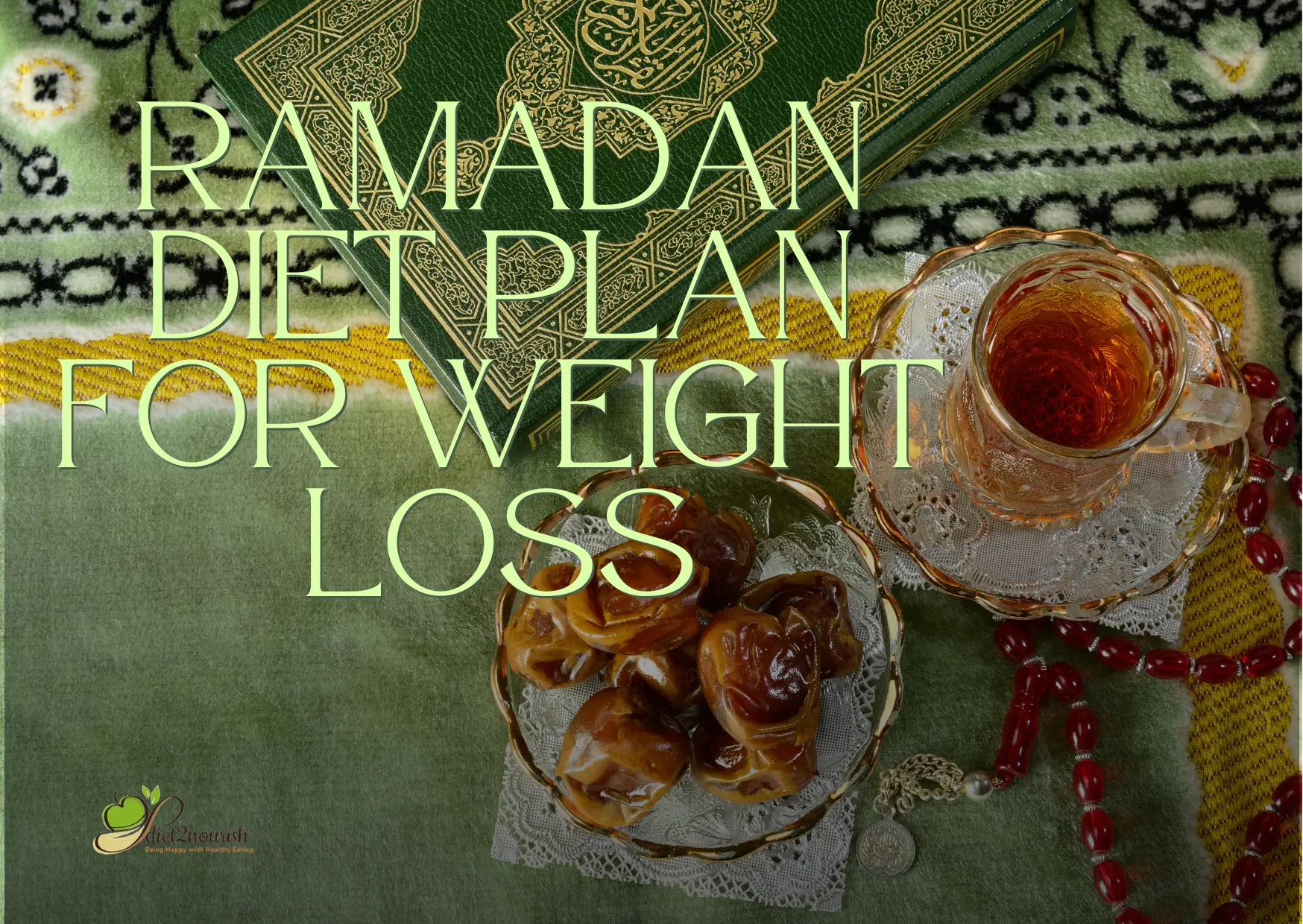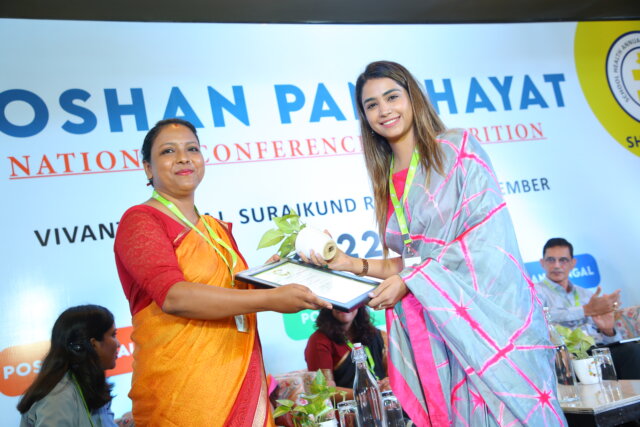Switch to a healthier you in this holy period with the Ramadan diet plan for weight loss. Dating during days and eating recklessly at the sundown can lead to even way more fat in the body. To help you with the post feast guilt, we have brought you a guide to healthy eating on festive days. Moreover, when you fast and create a calorie deficit, this Ramadan diet plan for weight loss can help your body burn more unhealthy fat and tone your muscles.
Some tips for losing weight during Ramadan upto 10 Kg

If you want to lose weight, carefully read the tips below so you can lose up to 10 kg within a month.
Exercise is the key to losing weight.
During Ramzan, you should compulsorily perform physical activities or exercises to boost the process of metabolism in the body. So, fat is not accumulated in the body. So, during the festive season, you should prepare a schedule for exercising. By exercising, you can overcome lethargy and fatigue and also prevent cardiovascular problems. So, exercise boosts the cognitive functioning of the body, and you can even work smartly during Ramadan.
Only drink water during Ramadan
If you want to lose weight, you should not drink juices that are too sweet or even avoid milkshakes. At every Iftar, it is a staple food. During festival time, you should eat a date and drink water. You can easily lose weight by drinking water as you drain away the toxic fatty substances from your body.
Eating protein at every meal
Some foods, such as eggs, and beans, are healthier and yet do not contain many calories. Although such foods are not easily digested by the body, you do not feel hungry for a long time. So, such foods should be consumed during Iftar or sehar every day.
Do not eat food containing too much salt, sugar, or fat.
You may be urged to eat foods like rolls, samosas, kachoris, or any type of fried food during Ramadan but they do not have much nutritional value. Such processed foods contain high calories, fats, salt, or sugar. Fried food contains high levels of trans fats, leading to the disposition of visceral fat in the lower portion of the body.
You can easily lose weight during Ramadan if you do not consume much salt. Salt helps in storing water in the body, leading to problems such as swelling and increased weight. So, you do not remain healthy while gaining weight. So, during Ramadan, do not eat much junk food.
To reduce weight, you can meet a consultant at the dietitian for the best Ramadan diet plan for weight loss.
Eat vegetables in plenty.
As vegetables contain fibers, they help in the smooth functioning of the digestive system and prevent problems such as constipation. Such foods do not contain more calories than foods containing starch, sugar, etc.
Eating plenty of vegetables can prevent hunger pangs for a long time. When you eat leafy vegetables, you can gain nutrients such as vitamins and maintain a balance of nutrients to remain healthy. Yet you do not increase calories in your body.
When you are planning for your Iftar evenings, you should consider the following options:
During Ramadan, you should include foods from the five food groups to ensure you are eating a healthy diet.
Food to consume and avoid in Ramadan diet plan for weight loss:
| Foods to be eaten: Fruits, vegetables Cereals, breads, grain products, Oils, fats, and sugars (these foods do not contain much nutrition and also have high calories).Poultry, and fishMilk, cheese, etc. | Food to Avoid: Deep-fried foodsHigh sugar and added sugar foodsHigh-fat dairy productsFast foodsCaffeine-based beverages |
Meals during Ramadan fasting:
Iftar
It is a meal during the day after fasting taken after sunset. During this time, you should eat protein-rich foods such as legumes, egg whites, low-fat dairy products, etc. You can also eat dates to replenish energy in the body. Foods such as brown rice, whole-meal bread, and whole-grain noodles also contain complex carbohydrates, so they provide energy to the body along with minerals and fiber. For every two meals, ensure one serving of fruit and one serving of vegetables.
You must simply eat a meal, but you should not enjoy a feast. Do not eat rich foods or your special dishes too much to prevent weight loss.
Suhoor
Suhoor is the meal before dawn. The meal should be moderate and healthier so you can remain energetic for hours. So, you should eat foods that slowly digest in the body and hence prevent pangs of hunger. So, you should consume foods such as beans, lentils, oats, millets, prunes, and also drink water to remain hydrated throughout the day.
Ramadan Diet chart for Weight Loss:
| Sehri | Iftar | Dinner |
| 1 Whole-wheat Roti 1 Vegetable Omelet 1 Chicken Kebab 1/4 c Yogurt 2 Dates 1/2 c Tea (optional) | 2 Dates Water (you can add mint, lemon juice, and honey) 1 Bowl Fruit Salad (without sugar) or Channa Chaat | 1/2 c Mix Vegetable Salad 1/4 c Raita Steamed Chicken, Daal, or any other form of protein 1 Whole-wheat roti or 1 c Rice |
Some common mistakes have negative consequences and lead to weight loss.

Consume Roohafza, every day
Result: It contains lots of sugar, preservatives, and food coloring.
Answer: This food should be consumed twice a week only when required.
Drinking lots of water during Iftar time
Do not drink too much water to fill your stomach, as it is strenuous for the body.
During Iftar, you should drink some sips, and later, after two hours, you can drink water in a glass.
when you chew and swallow food quickly.
If you chew and swallow food quickly, then you can unnecessarily gain weight, and the digestive process too becomes slower.
So, you should chew food slowly, so the process of digestion is improved and you can maintain a healthy weight.
Eating sweets and desserts after Iftar
Result: If you eat sweets or desserts after meals, you feel sleepy and drowsy.
Answer: After an Iftar meal, you should wait for two hours so you can stay fresh and then be awake for Isha’s prayers.
Eating foods containing high sodium
Result: Eating foods containing high sodium can aggravate thirst for many hours, almost throughout the fasting hours.
Answer: So, you should eat foods containing potassium because they help with water retention in the body and also prevent thirst. During Suhoor, you can eat bananas so you can control your thirst throughout your fast. You can eat foods such as dried peaches, dates, milk, peas, pumpkin, or dark chocolate in a minimum amount.
Exercising after Iftar
Result:
It leads to adverse blood flow as it is focused on the stomach during Iftar.
Answer:
You should perform workouts two hours after intake.
Healthy methods of cooking
Shallow frying
Instead of frying, use healthy cooking methods such as baking, grilling, or steaming to preserve the taste and original flavor of the food.
Conclusion
So, Ramzan is a Muslim festival marked by fasting from sunrise to sunset. You should always maintain body hydration to remain healthy and also consume a healthier low-fat diet. As you should maintain your weight during Ramadan, you should avoid sugary drinks and fried foods. You can improve the metabolism of the body and lose weight if you perform mild to moderate activities.
Frequently asked questions (FAQs)
1. Avoid overeating.
2. Slowly Chew your food to avoid indigestion.
3. Consume soup and salad first.
4. Drink at least eight glasses of water.
Effects of Ramadan fasting on weight difference for individuals, ranging from weight loss to weight gain, based on whether or not energy intake in the non-fasting period for the lack of energy consumption during the fasting period.
The types of cooking you should avoid are deep frying and the use of excessive oil in the body.










